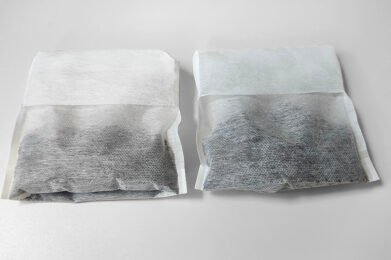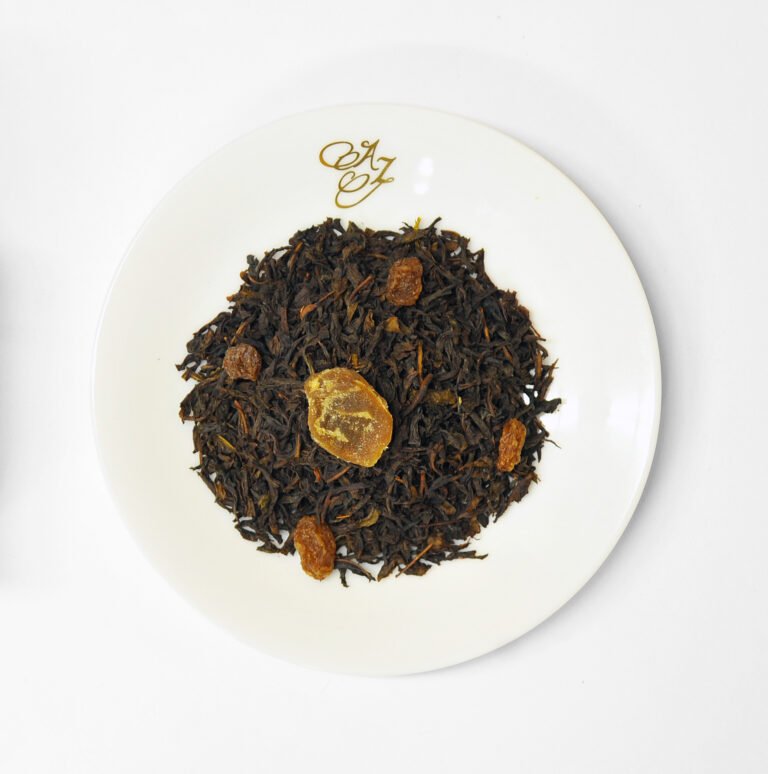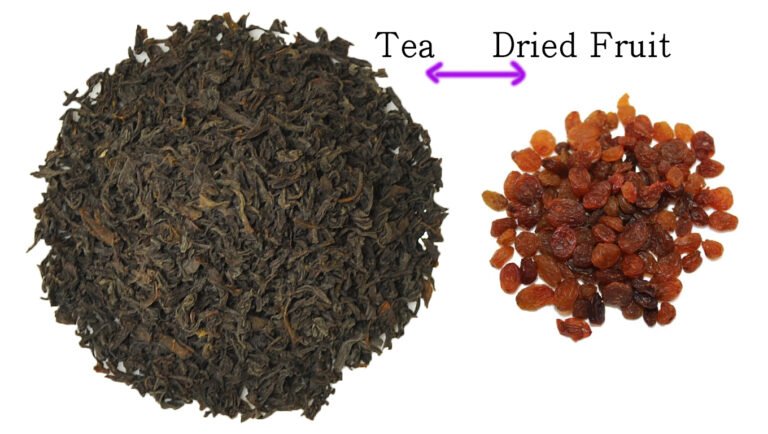Comment préparer le thé
Comment préparer un délicieux thé sans astringence, amertume ou âpreté en utilisant de l'eau douce du Japon. Sachets de thé :
- Place the tea bag in a teapot.
- Pour freshly boiled water, 400 ml (or 300-350 ml if you prefer a stronger taste), directly into the tea bag from a little height.
- Move the tea bag up and down about 15-20 times. (Around 10 seconds is a rough guideline.)
- Always remove and discard the tea bag. Steep with the lid on for about 5-10 minutes, then let it cool slightly (around 10 minutes) before enjoying. (You can savor a delicious, sweet taste after about 40 minutes when it has cooled below 60 degrees Celsius.)
Comment préparer un délicieux thé sans astringence, amertume ou âpreté en utilisant de l'eau douce du Japon. Feuilles de thé :
- Put the tea leaves in a teapot. (Use 1 teaspoon for finely ground tea leaves and 2 teaspoons for larger tea leaves.)
- Pour freshly boiled water, 400 ml (or 300-350 ml if you prefer a stronger taste), into the teapot from a little height.
- Mix the tea leaves up and down, using a spoon, in a jumping motion approximately 15-20 times. (Around 10 seconds is a rough guideline.)
- Always remove and discard the tea leaves. Steep with the lid on for about 10 minutes, then let it cool slightly (around 10 minutes) before enjoying. (You can savor a delicious, sweet taste after about 40 minutes when it has cooled below 60 degrees Celsius.)
Notes:
- With alkaline water, the tea will turn into a dark reddish color, while acidic water will result in a vibrant amber-colored tea.
- For an even more delicious taste, you can add an appropriate amount of honey to ginger tea.
How to make delicious milk tea! How to make delicious chai! (3-4 teaspoons of tea leaves/2-3 tea bags)
- Start by extracting about 30% of the cup’s volume with 400 ml of water. (For a tastier brew, it is recommended to use strong alkaline water with a pH of 9-9.5.) Gently move the tea leaves and let the tea steep for about 1 minute.
- Keep the tea leaves in and warm them in the microwave for about 30 seconds, or heat them on a gas stove.
- Add 70% of the cup’s volume with milk and continue heating for 2 to 2 minutes and 30 seconds. Then, remove the tea leaves. (If using a gas stove, remove the tea leaves just before the milk starts to overflow.)
- Pour the mixture into a teacup, cover it, and let it steep and mature for about 10 to 20 minutes.
Notes:
- To add sweetness, it is recommended to warm the milk with some brown sugar to enhance the flavor. It’s delicious!
- When using tea leaves, using commercially available tea filter bags makes cleanup easier.
How to Make Delicious Cold Brew Tea and Green Tea without Bitterness

Cold Brew Tea (1L Bottle) – Approximate Guide for 1 Liter
- Place 5-7 grams of tea leaves into a dashi bag (which can be found at 100 yen shops or similar stores) and seal it.
- Put the bag into a container and add 1 liter of room temperature or cold water. Leave it at room temperature for about 45 minutes if you want to brew it at room temperature, or place it in the refrigerator if you want it chilled.
- After 45 minutes, remove the tea leaf bag.



Important Notes:
Japanese Water is Soft Water: If you leave the tea bag in for more than 45 minutes, bitterness may start to develop. The longer you leave it, the more astringent and less pleasant the tea will become.
For Fruit Teas: If you are using fruit teas, especially AZ Tea’s Muscat Tea, Forbidden Fruit, Apricot Tea, etc., make sure to separate the dried fruits from the tea leaves. Instead of placing them in the tea bag, put them directly into the water to enhance the fruit flavor extraction.
Tip for Better Taste: Match the tea leaves with the right type of water.
- For citrus-flavored teas like Earl Grey, Lady Diana, Lavender Earl Grey, Lemon Tea, etc., use mildly acidic water to achieve a better flavor. Some commercially available mildly acidic waters include Mori no Mizu, Shirakami Sanchi no Mizu, Kumano Kodo, and Yakushima no Mizu. If using a water purifier with a generator, select the mildly acidic option when generating the water.
- For flavored teas with fruits, flowers, spices, etc., use strongly alkaline water for a richer, more flavorful tea. Commercially available strongly alkaline waters include Onsen Water, typically labeled with a higher price. These waters usually have a pH of around 9 to 9.9. Onsen Water 99 and Kannon Onsen are examples of strongly alkaline waters. If using a water purifier with a generator, select the “Alkaline 3” option when generating the water.
How to Make Naturally Sweet and Delicious Fruity Teas with Soft Water
Steps:
- Brew the Tea: Follow the instructions in the video for making a delicious tea infusion:
- Add Dried Fruits: Separate the dried fruits from the tea leaves if you’re using AZ Tea’s Muscat Tea, Forbidden Fruit, Apricot Tea, etc. After making the tea infusion, select the dried fruits and add them directly into the tea. This will enhance the extraction of the fruit flavors, resulting in a naturally sweet and fruity tea when it’s ready to drink.


Muscat Tea


Forbidden Fruit


Apricot Tea
Important Notes:
- Use Strong Alkaline Water: To achieve a richer, more flavorful tea, use strongly alkaline water. Commercially available options labeled as “Onsen Water” are usually strongly alkaline, with a pH level around 9 to 9.9. Examples include Onsen Water 99 and Kannon Onsen. If you’re using a water purifier with a generator, select the “Alkaline 3” option. This will produce water that is close to a pH of 10, creating the strongest alkaline water possible for brewing.







































